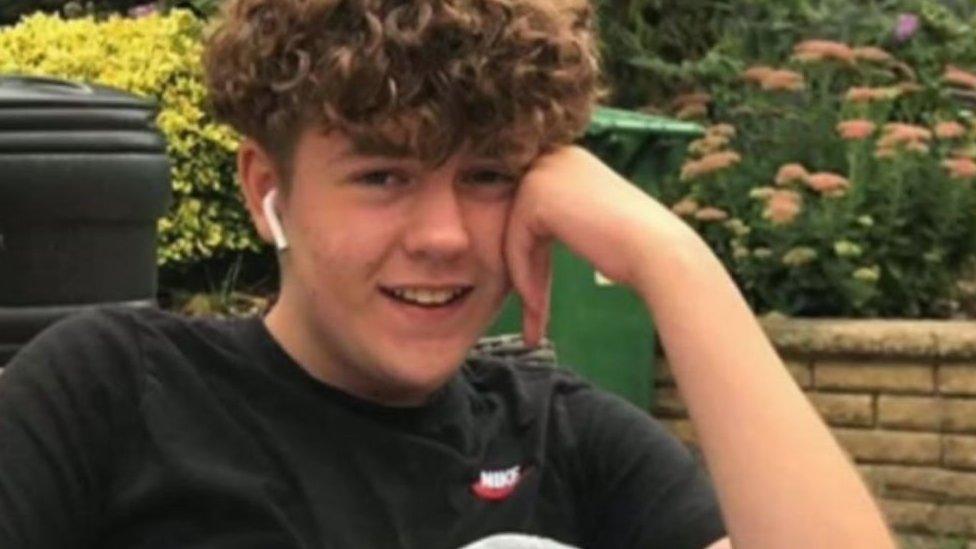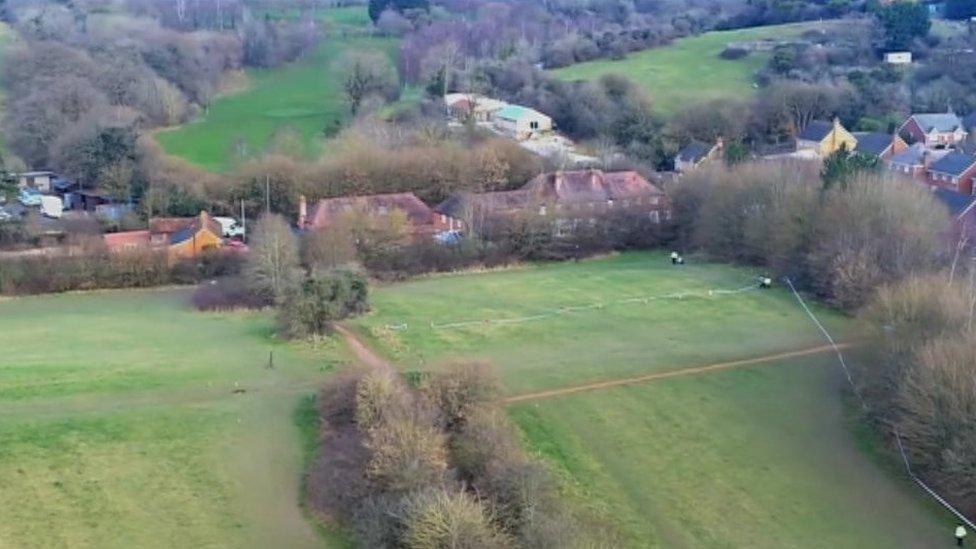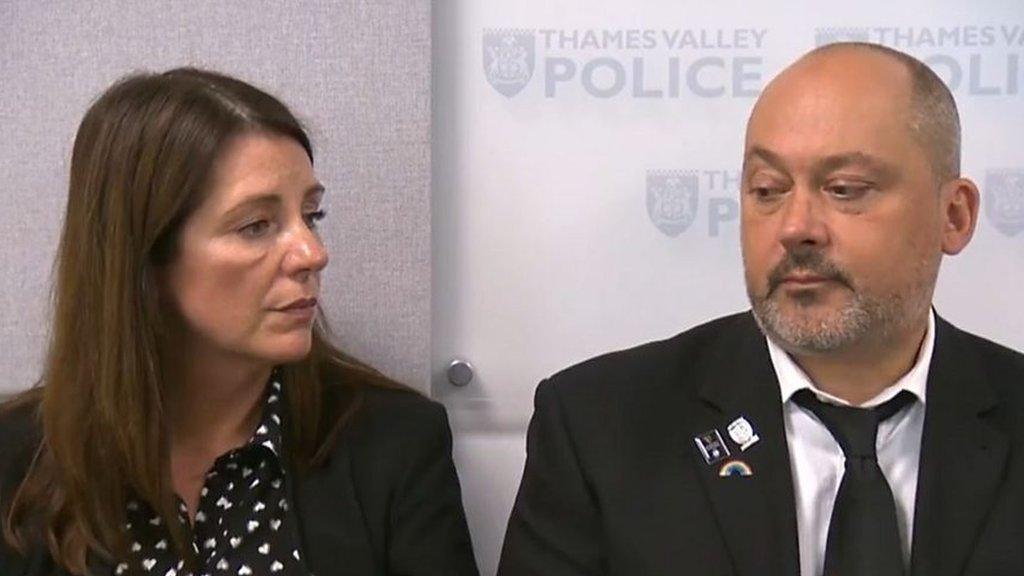Olly Stephens: Concerns about killer's violent nature raised before killing
- Published

Olly Stephens was stabbed to death in Emmer Green in Reading
Concerns about a teenager's violent nature were repeatedly raised before he murdered a 13-year-old boy.
The boy was detained for the killing of Olly Stephens in Reading, along with two other teenagers who had plotted with him on social media to ambush Olly in January 2021.
A review into the boy's contact with various agencies has now been finished.
Olly Stephens, 13, died after being stabbed twice at Bugs Bottom fields in Reading in January 2021.
The BBC has now learned that one of his killers was well known to children's services and his schools had repeatedly flagged up concerns about his violent tendencies, and the danger he posed to others.
A review into the boy's involvement with numerous agencies before the murder has been carried out by Berkshire West Safeguarding Children Partnership.
It covers the local authority areas of Reading, West Berkshire & Wokingham.
The review makes eight recommendations for improvement, including better information sharing between agencies and a strengthening of policies and procedures.
The review states the boy was diagnosed with a 'developmental disability' at a young age. An earlier hearing at the Court of Appeal revealed it was a diagnosis of Asperger's Syndrome; a form of autism.
He had an Education and Health Care Plan but his disruptive and increasingly violent behaviour led to him being frequently excluded from school.
Among the concerns flagged up over time about the boy were:
Threats to harm others with blades
Assaults on other children
His possession of cannabis
Making bombs at home
His possible exploitation by county lines drugs gangs
Suspected involvement in violent crime
Threats to kill others with a knife
Claims to have associates with access to weapons and a firearm.
Records state the boy's mother repeatedly "declined" support, resulting in raised issues repeatedly being "closed".
However, she told the review body "at no time did she withdraw consent" for early help or say she did not need support.
She felt early interventions were "ineffective" and said the Specialist Education Needs (SEN) Service would "not listen to her views".
The review states the SEN service did not understand the boy's needs, and there was a "lack" of provision and capacity to support children with specialist needs.

Olly's death prompted a major police investigation at Bugs Bottom fields
In the months running up to Olly's murder, his 13-year-old killer was involved in three violent crimes against other young people. The investigations suffered delays though and were each carried out by a different police officer.
Organisations involved in a multi-agency strategy discussion were split over whether or not a more "robust" child protection response was needed, but ultimately it was left to Children's Services alone to take action and opportunities were "missed".
The partnership said in a statement there was a "clear and detailed action plan in place" which was being "actively progressed" and "scrutinised". For example, a new school "exclusion" prevention programme was now being trialled and assessed.
Two boys, both aged 14, were found guilty of murdering Olly Stephens following a trial at Reading Crown Court, and a girl, 14, admitted manslaughter and was given five years.
The boys were sentenced to life - with a minimum of 13 and 12 years in custody respectively - and the girl five years, in 2021.
None of those convicted can be identified for legal reasons.

Analysis
By Nikki Mitchell, BBC South home affairs correspondent
This isn't the first time there have been calls for improvements in children's safeguarding procedures after a child has died or is killed in tragic circumstances. Sadly, it won't be the last.
Time and again, safeguarding reviews have identified "missed opportunities" by various agencies tasked with protecting the youngest in our society.
This review paints a picture of an education system struggling to cope with an increasingly violent but also vulnerable child.
And what of the risk this child posed to others? Olly Stephens was a child too; a child killed by children on a Sunday afternoon.

Follow BBC South on Facebook, external, Twitter, external, or Instagram, external. Send your story ideas to south.newsonline@bbc.co.uk, external.
Related topics
- Published10 December 2021

- Published24 September 2021

- Published24 September 2021
- Published24 September 2021

- Published26 July 2021

- Published14 July 2021

- Published2 July 2021

- Published30 June 2021

- Published29 June 2021

- Published28 June 2021
